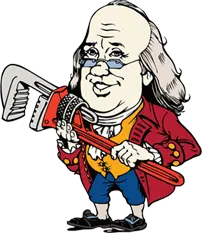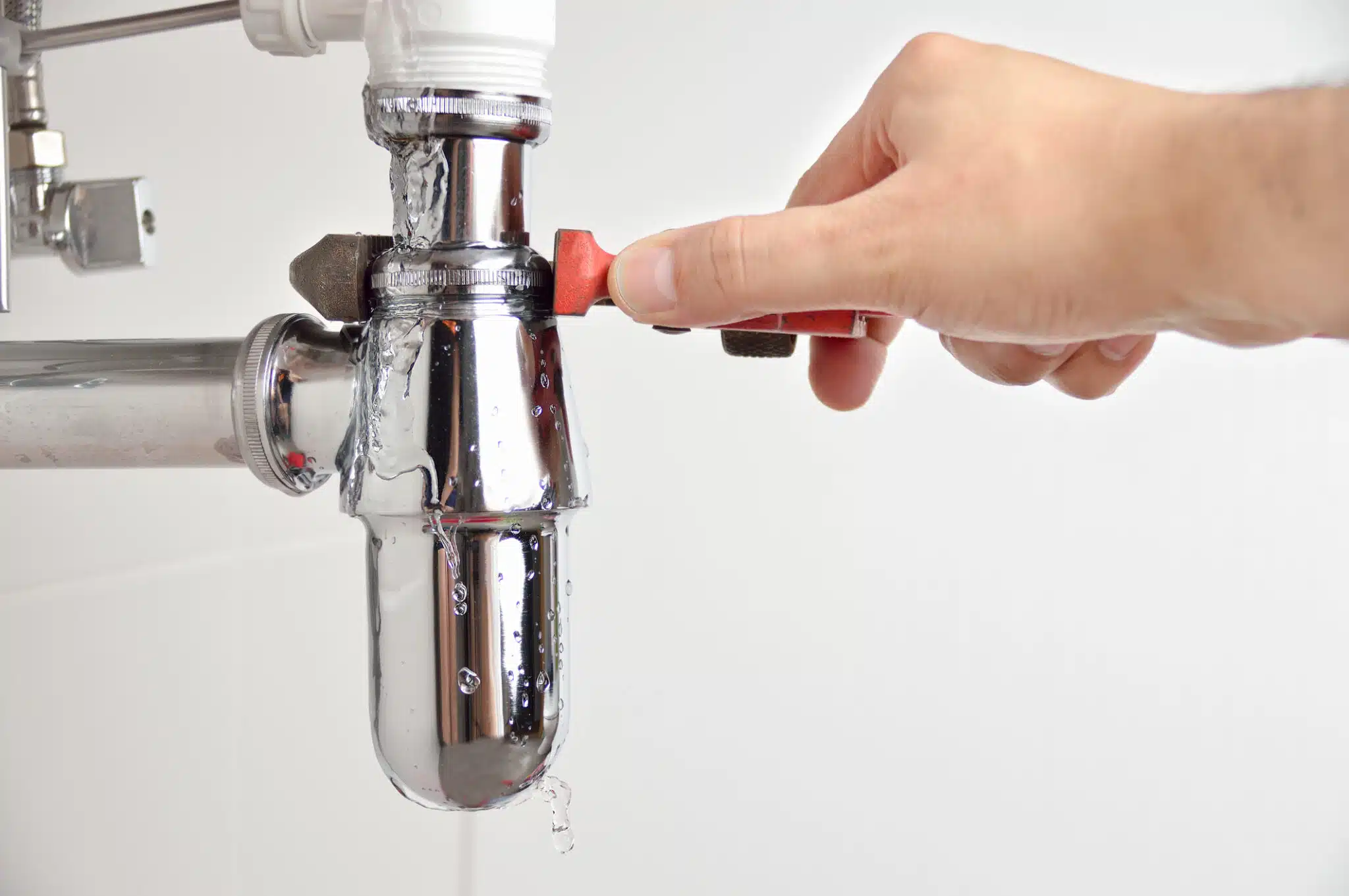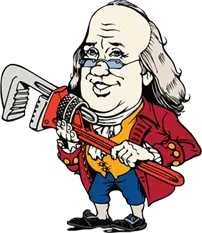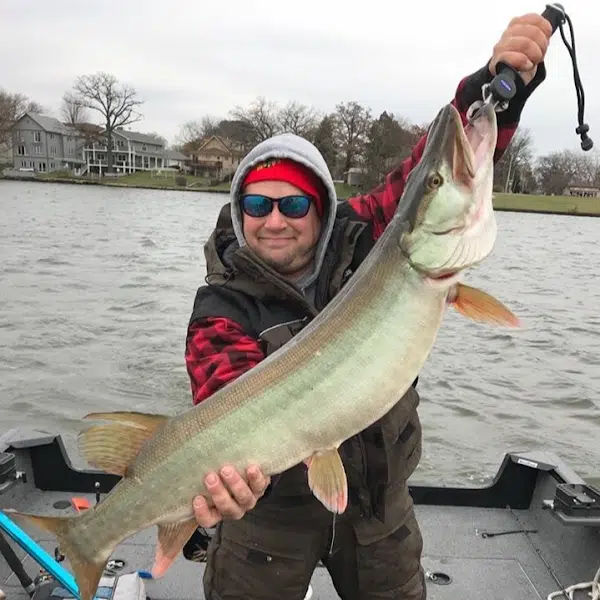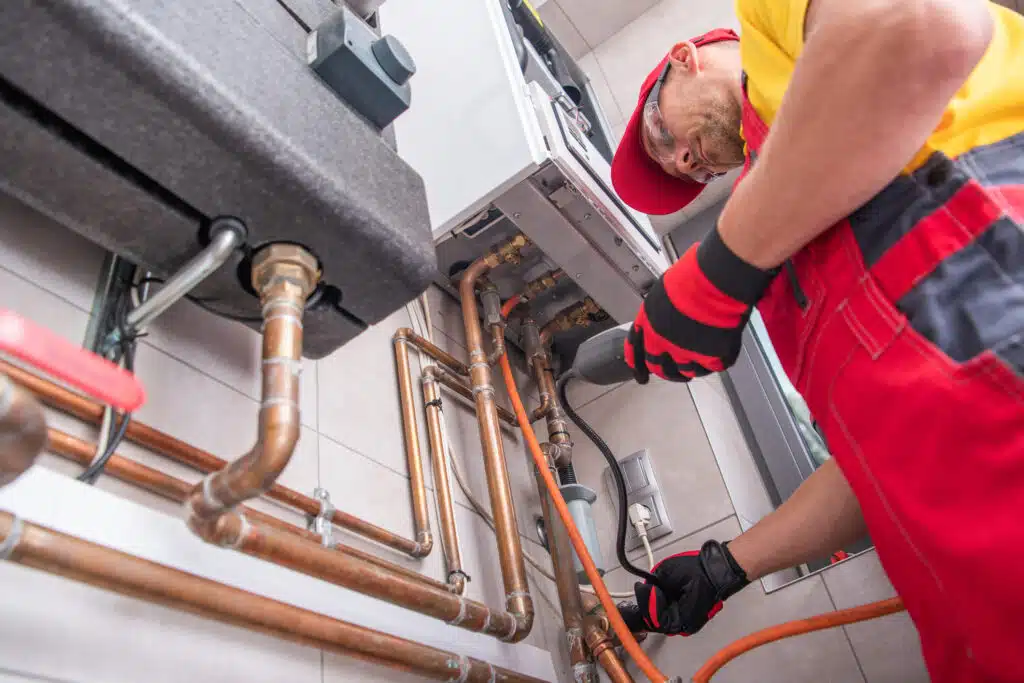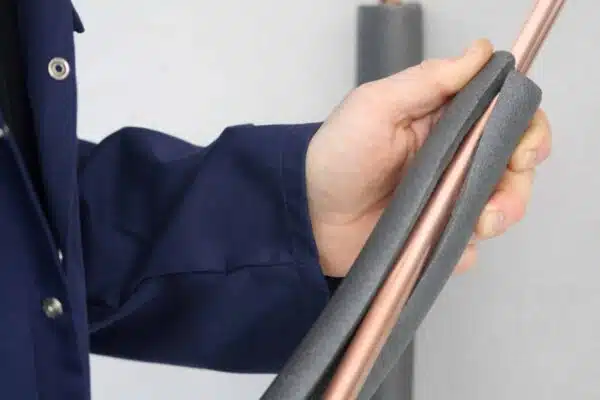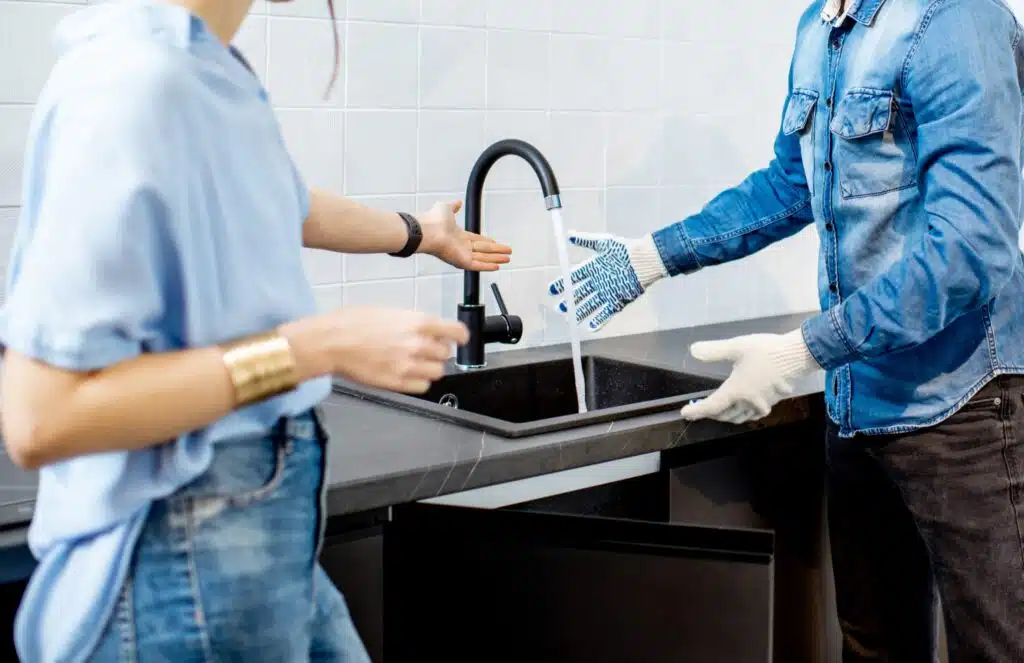Ever wonder why your water bill keeps going up, or notice strange wet spots around your home? Plumbing leaks can sneak up on you, causing damage long before you realize there’s a problem. Whether it is a tiny drip or a hidden leak behind the walls, ignoring these issues can cost you big repairs down the line.
In areas like Lancaster, PA, Reading, PA, or Harrisburg, PA, many homes deal with aging pipes, making leaks even more common. The good news? Learning to spot the early signs can save you time, money, and stress.
Why It’s Important to Detect Leaks Early
Catching plumbing leaks early can save you from some major headaches. Even a small, unnoticed leak can lead to expensive repairs if it damages walls, floors, or ceilings.
Left unchecked, leaks can cause structural damage and create the perfect conditions for mold and mildew to grow, which is a health hazard. In places like Lancaster, PA, Reading, PA, and Harrisburg, PA, where older homes are common, small plumbing issues can quickly get worse.
Early detection not only prevents costly damage but also helps conserve water, keeping your utility bills from skyrocketing. Spotting leaks early makes it easier to fix them before they turn into bigger problems.
Common Causes of Plumbing Leaks
There are several reasons why plumbing leaks happen, and knowing these causes can help you avoid expensive repairs. In many homes across Lancaster, PA, Reading, PA, and Harrisburg, PA, older pipes become more prone to leaks as they wear down over time.
High water pressure puts unnecessary strain on your plumbing system, increasing the chance of cracks and leaks.
Loose joints and connections in the pipe network are another common cause, as they can shift, loosen, or degrade with time. Environmental factors like freezing temperatures or shifting soil can also stress pipes, causing them to crack and leak unexpectedly.
Old Pipes
As pipes age, they start to rust, corrode, and develop tiny cracks that may not be noticeable right away. Older homes, particularly those with galvanized steel or cast iron pipes, are at a higher risk of these problems.
Over time, these tiny leaks inside walls or floors can cause serious water damage and weaken your home’s structure. Replacing or inspecting older pipes regularly can help prevent leaks before they turn into bigger problems.
High Water Pressure
High water pressure might feel great in the shower, but it can spell trouble for your plumbing system. Too much pressure forces water through pipes at speeds that create stress, weakening pipe walls and connections over time.
This constant strain can lead to pinhole leaks or even major bursts, especially in homes connected to strong municipal water supplies like those in Harrisburg, PA.
If you notice faucets or appliances making strange noises or banging sounds, it might be a sign of high pressure. Installing a pressure regulator can help protect your plumbing from damage and reduce the risk of leaks.
Loose Joints and Connections
Pipes are held together by joints and connections, which are prone to shifting, wearing out, or loosening over time. Vibrations from water flow, temperature changes, or poor installation can make these connections come loose.
Even a small, unnoticed drip from a loose joint can grow into a larger leak, causing significant damage if left unattended.
Hidden leaks in walls, ceilings, or floors are common in older homes with complex plumbing systems. Regular inspections of visible joints and connections can help detect these leaks early before they worsen.
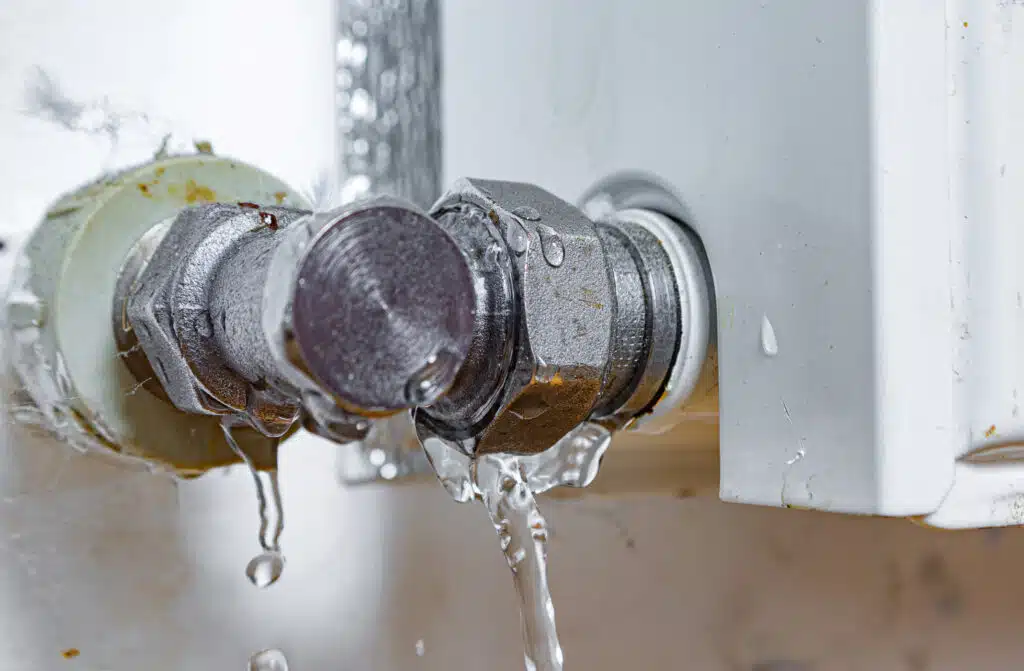
Early Signs of Plumbing Leaks
Spotting the early signs of plumbing leaks can save you from costly repairs and prevent serious damage to your home. Small leaks often go unnoticed at first, but they leave behind telltale signs if you know what to look for.
From sudden increases in your water bill to strange smells, these hints can help you catch problems early.
In areas where many homes are older, leaks are more likely to happen inside walls or under floors. Learning to recognize these signs gives you a head start in fixing leaks before they turn into bigger issues.
Unexplained Water Bills
A sudden spike in your water bill without an increase in usage is a common warning sign of a hidden plumbing leak. Even a small drip can waste hundreds of gallons over time, driving your bill higher than usual.
If you live in an area where water costs are carefully tracked, a sharp increase can be a good indicator of trouble.
Compare your recent bills to your past usage to see if there’s a pattern of rising costs. Catching the problem early can save you from paying for wasted water and unnecessary repairs.
Wet Spots on Walls or Ceilings
Wet spots or discolored patches on walls or ceilings are a sign that water is leaking inside your home. These spots may appear slowly, often as faint stains, and gradually grow as the leak worsens.
In homes around Lancaster, PA, where older plumbing systems are common, leaks behind walls often go unnoticed until they leave visible marks.
If you spot these wet patches, it is important to investigate quickly before mold or structural damage develops. Fixing the leak early can prevent expensive repairs and keep your home safe.
Mold or Mildew Growth
Mold or mildew thrives in damp environments, and a hidden plumbing leak can provide the perfect conditions for it to spread. If you notice a musty smell or see black, green, or white mold growing in unusual places, it could mean there’s water leaking nearby.
Mold tends to grow in areas with limited airflow, such as behind walls or under sinks, where leaks might be hidden. Homes which often experience humid summers, are especially prone to mold growth when leaks go unchecked.
Addressing the leak and cleaning up mold quickly is important to protect both your health and your home.
Sounds of Running Water
If you hear the sound of running water when no taps are on, it could indicate a hidden leak. The sound might be faint, like a trickle, or more noticeable, like a steady drip inside a wall or floor.
Pay attention to these sounds, especially in rooms with plumbing fixtures, such as bathrooms, kitchens, or laundry rooms.
In homes with older pipes, it is important not to ignore these noises, as they may signal an active leak. Catching the sound early can help you locate the problem before it causes serious damage.
Musty Odors
A musty or damp smell inside your home is often a sign that water is leaking somewhere. Even small leaks can create enough moisture to cause odors, especially if the water collects behind walls or under floors.
The longer the leak goes undetected, the stronger the smell becomes, making it harder to ignore. In regions where humid conditions can worsen odors, it is important to act fast if you notice unusual smells. Finding and fixing the source of the leak early will prevent further damage and keep your home smelling fresh.
How to Check for Plumbing Leaks
If you suspect there’s a leak in your home, a few simple steps can help you confirm the problem. Checking for plumbing leaks isn’t hard, and doing it regularly can prevent costly repairs.
Visual inspections and monitoring your water meter are two effective ways to catch leaks early.
Homeowners in areas like Lancaster, PA, Reading, PA, or Harrisburg, PA should make it a habit to inspect their plumbing, especially in older homes where leaks are more common. By staying proactive, you can spot minor leaks before they escalate into expensive repairs.
Visual Inspections
One of the easiest ways to check for plumbing leaks is through a visual inspection of your home. Start by looking under sinks, around toilets, and behind appliances like dishwashers or washing machines.
Pay attention to wet spots, rust, or mineral buildup on pipes, as these are signs of small leaks. In homes with basements or crawl spaces, inspect exposed pipes regularly to catch early signs of trouble. Make it a routine to walk through your home every few months, as this quick check can help you stay ahead of hidden plumbing problems.
Using Your Water Meter
Your water meter is a valuable tool for detecting leaks. First, make sure all faucets and appliances in your home are turned off, then check the meter reading. If the numbers on the meter continue to move, it is a clear sign that water is leaking somewhere.
In places where water usage is carefully monitored, this method is especially useful for spotting hidden leaks.
You can also take a reading, wait a few hours without using water, and then check again. Any change in the numbers will confirm that water is escaping, even if the leak isn’t immediately visible.
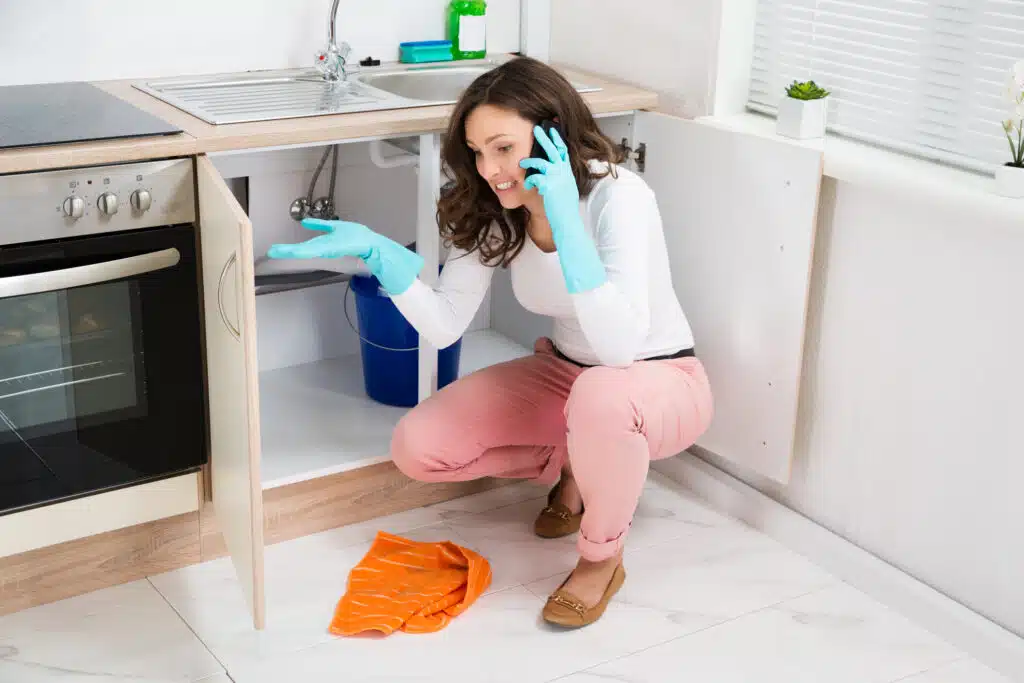
What to Do If You Spot a Leak
Once you’ve confirmed a plumbing leak, it is important to act quickly to prevent further damage. Even small leaks can escalate, leading to expensive repairs and water damage.
Taking the right steps will help minimize the impact and ensure that the issue is fixed properly.
Whether you live in Lancaster, PA, Reading, PA, or Harrisburg, PA, knowing what to do when a leak happens can save you time, money, and stress. Here are the key steps to follow when you discover a leak.
Turn Off the Water Supply
The first thing you should do when you find a leak is to turn off the water supply to stop the flow of water. Locate the main shut-off valve, which is often found near your water meter or where the water line enters your home.
Shutting off the water right away will prevent further flooding and damage to your property. It is a good idea to make sure everyone in your household knows where the shut-off valve is located in case of emergencies.
If the leak is isolated to one fixture, such as a toilet or faucet, you can use the local shut-off valve instead.
Contact a Professional Plumber
For most leaks, especially those hidden behind walls or underground, it is best to call a professional plumber. While small drips from a faucet may seem easy to fix, hidden leaks require specialized tools and experience to repair properly.
Plumbers in areas like Lancaster, PA, and Reading, PA, are familiar with the unique plumbing systems in older homes and can quickly identify the source of the problem.
Trying to handle complex leaks yourself can lead to more damage and costly repairs. A licensed plumber will ensure the repair is done right the first time, saving you time and hassle.
Preventing Plumbing Leaks
Preventing plumbing leaks before they happen is the best way to avoid costly repairs and water damage. Regular maintenance and monitoring can keep your plumbing system in good shape and reduce the chance of leaks.
Homes often deal with aging plumbing systems, making it especially important to stay proactive. By keeping an eye on your water usage and taking preventive steps, you can protect your home from unexpected plumbing issues. A little prevention goes a long way in keeping your pipes leak-free.
Regular Maintenance
Routine plumbing inspections and maintenance help you catch small issues before they become major problems. This includes checking for loose joints, dripping faucets, and corrosion on exposed pipes.
Have a plumber inspect your system every few years, especially if your home is older or has a history of leaks. It is also important to insulate pipes to prevent freezing and bursting. Staying on top of maintenance will keep your plumbing system running smoothly and reduce the risk of future leaks.
Monitor Water Bills
Keeping track of your water bills is an easy way to spot potential plumbing issues. Sudden increases in your bill without any changes in water usage are often a sign of hidden leaks.
Compare your monthly bills regularly to make sure there aren’t any unusual spikes in usage. In places like Harrisburg, PA, where water costs can fluctuate, tracking your bill helps you identify problems early. If you notice a consistent increase, it is a good idea to investigate further or call a plumber to check for hidden leaks.
Don’t Let Plumbing Leaks Go Unnoticed – Call the Experts Today!
If you’ve spotted early signs of plumbing leaks or suspect a hidden issue, don’t ignore it. Even small plumbing leaks can lead to costly water damage and unexpected repairs. At Benjamin Franklin Plumbing of Lancaster, we specialize in identifying and fixing plumbing leaks to keep your home safe and dry.
We proudly serve Lancaster, PA, Reading, PA, and Harrisburg, PA, with reliable, professional service you can trust.
Whether it’s a minor drip or a bigger problem, our team is ready to help. Schedule an inspection today and let us handle your plumbing leaks before they become a major issue!
FAQs About Plumbing Leaks
What are the common causes of plumbing leaks?
Plumbing leaks can happen due to aging pipes, high water pressure, or loose joints and fittings. Environmental factors, like freezing temperatures, can also cause cracks or bursts in your plumbing system. In older homes across Lancaster, PA, Reading, PA, and Harrisburg, PA, plumbing leaks are often linked to outdated systems that require maintenance or upgrades.
Can I fix a plumbing leak myself?
Small plumbing leaks, like dripping faucets or leaky pipe joints, can often be fixed with basic tools and supplies. However, larger or hidden leaks are more complicated and should be handled by a professional plumber to avoid further damage. Attempting to fix more serious plumbing leaks yourself could lead to costly mistakes if not done correctly.
How often should I check for plumbing leaks?
It’s smart to check for plumbing leaks every few months to catch potential problems early. This includes inspecting visible pipes, checking appliances, and reviewing your water bills for unexpected increases. Regular leak checks are essential in areas like Reading, PA, where homes with older plumbing systems are more prone to leaks.
What should I do if I find a plumbing leak?
If you discover a plumbing leak, the first thing to do is shut off the water supply to stop any further damage. For most leaks, it’s a good idea to contact a professional plumber to make the necessary repairs. Quick action can prevent small plumbing leaks from becoming expensive problems.
How can I prevent plumbing leaks in the future?
Preventing plumbing leaks requires regular maintenance and monitoring of your water usage. Inspect pipes and appliances regularly and make sure to insulate pipes during winter to prevent freezing. Staying proactive will help avoid plumbing leaks and keep your home safe from unexpected water damage.
What are the consequences of ignoring plumbing leaks?
Ignoring plumbing leaks can lead to several serious issues. Over time, even small leaks can cause significant water damage, including mold growth, structural damage to your home, and increased water bills. Additionally, chronic dampness from unresolved leaks can attract pests and deteriorate building materials. To avoid these costly complications, it is crucial to address leaks promptly when they are detected.




